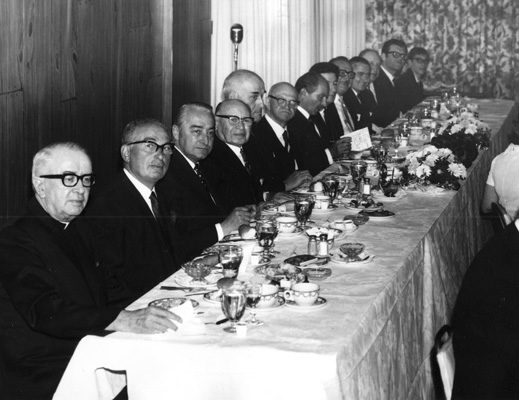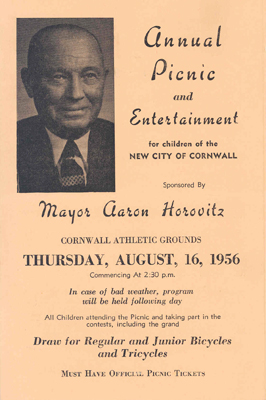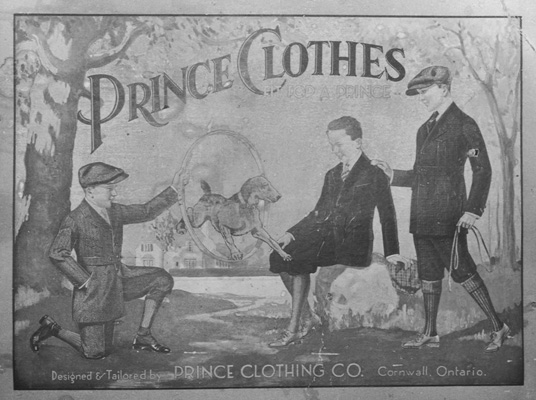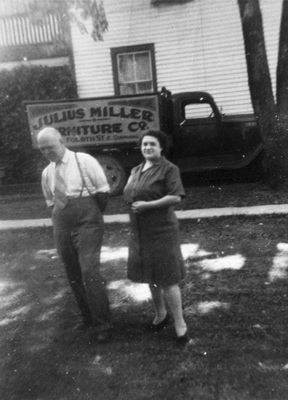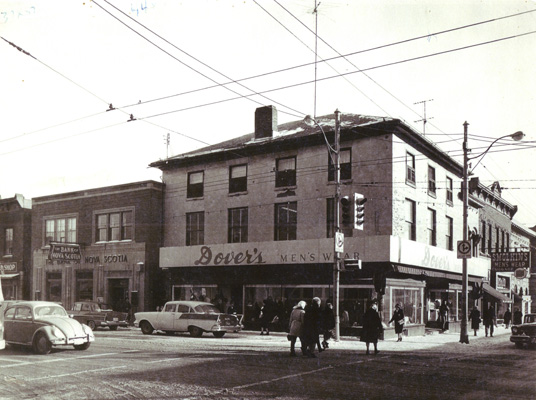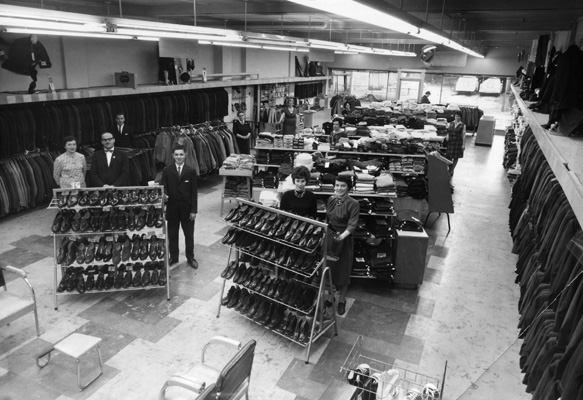Employment & Business
Many of Cornwall's Jews made their living in ways that other Eastern European immigrant Jews before them had done. They took up occupations open to people with very little capital, who were ready to work hard. One example is Mark Goldhamer's father, who ran a series of ladies' and men's wear stores in Cornwall. After emigrating from Eastern Europe, he began peddling with a horse and sleigh in Cornwall and the surrounding villages.
The "junk business" was another trade popular with poor immigrants. Moses and Nathan Miller started out in Cornwall this way. Nathan Miller continued this business successfully with several of his 12 children. Julius Miller, Moses’ son, was helped by a family friend to move into the furniture business. Founded in 1933, Julius Miller Furniture Ltd. developed into a highly successful enterprise. It was in fact the most successful retail furniture business in Eastern Ontario. This business was eventually passed on to his two sons Bernard and Farrand and was later purchased by the Leon's Furniture chain.
Among the Cornwall Jewish community's notable business successes were Cornwall Pants and Prince Clothing, clothing factories created by Aaron Horovitz and his brother Louis. The Horovitz brothers used their talents to build up a business that employed several hundred people in town between 1912 and 1975.
Many of Cornwall's Jews operated stores on Pitt Street, in the main downtown shopping area. In 1919, Archie Dover opened a wool shop, which he expanded into what became a well-respected menswear store. Later Dover would open stores across Ontario. Nathan Phillips and Co. advertised "Nothing makes a Boy feel more like a Man than Good Clothes." When his mother became ill in 1940, Bunny Schnapp took over her store location and started his own shop at age 23 in 1941. Another successful Pitt Street clothing store was established by Tilla Brucer Kastner, whose talent for business enabled her to make smart buying decisions, including predicting the success of blue jeans. Although the clothing business was popular, there were other kinds of Jewish-owned shops including Joyce Rabin's hair salon.
Meeting Sidney Levitt
Farrand Miller talks about the day his father Julius Miller met Sidney Levitt. Levitt was the president of the furniture retail company Woodhouse of Canada. Julius Impressed Sidney Levitt so much that Levitt arranged for credit to be extended to him from the bank and factories so he could start up his own furniture business.
Interview with Farrand Miller, 5 September 2007, Sharon Gubbay Helfer. OJA, Oral History #363

